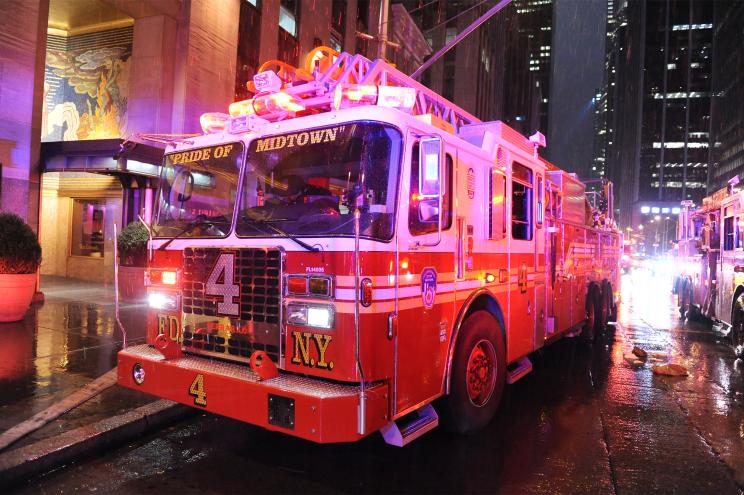A group of nearly 4,000 former public servants, including firefighters, police officers, teachers, and EMTs, say the city is stiffing them on their health insurance — by forcing them onto a new plan that costs more for fewer benefits, new court papers allege.
Under the new Medicare supplement plan, called Alliance Medicare Advantage, the city’s retired heroes will be required to pay $15 co-pays for many routine services, including specialist visits, diagnostic tests and trips to urgent care, according to the Manhattan Supreme Court lawsuit filed Sunday.
Currently, no co-pay is required.
In addition, not all doctors have to accept the plan and patients will need prior authorization for procedures that “may result in a serious delay of medical tests or procedures,” potentially endangering their health, the suit alleges.
The health plan, which goes into effect Jan. 1, was also struck quietly between the city and the Municipal Labor Committee — “a purely advisory group” that the retirees are “not represented by,” the filing claims.
The two sides “engaged in a charade of ‘negotiating'” to reach the deal that affected some 250,000 retired government employees without their consultation, the suit charges.
And once the plan was finalized — without a public hearing being held — it was only announced on the Office of Labor Relations’ website on July 14 where it wouldn’t be widely seen, the suit claims.
The city “does not have the right to impose materially diminished benefits upon people who are long-retired and have depended upon vested benefits that were negotiated under earlier [Collective Bargaining Agreements] that were in place when they retired,” it charges.

The deal does technically allow the former public servants to opt-out of the new plan by October, but remaining on their current plan will cost them, the filing notes.
On top of also imposing the same co-pays as the new plan, the retired city workers will also have to cough up nearly $200 extra a month if they choose to stay with their current coverage, the court papers allege.
Supplemental insurance, called Medigap, covers the 20 percent that Medicare doesn’t. The subsidized coverage is costing the city over $500 million a year.
“Understandably, the City would like to reduce its healthcare costs. But it cannot do so by shifting those expenses onto the retirees,” the suit said.
Marianne Pizzitola, the president of the Organization of Public Service Retirees, Inc., the group suing the city, said it is pulling “the most critical of safety nets” out from under thousands of elderly and disabled former city employees — many of whom now live on fixed incomes.
A lawyer on the suit, Steve Cohen of law firm Pollock Cohen LLP, said “Importantly, the obligation to pay for that insurance is not only established by law … but is incorporated into most of the collective bargaining agreements that the City has entered into for decades.”
Nick Paolucci, a spokesman with the city Law Department said, “The city is committed to selecting providers that are in the best interest of the city and its retirees.
“We’ll review the case.”
A spokesperson with the Office of Labor Relations deferred comment to the Law Department.
Meanwhile, on Friday, some 100 retirees had a die-in press conference at City Hall where they dressed as the Grim Reaper and mimicked choking to death in protest of the plan.
Sarah Shapiro, a retired teacher with the Cross Union Retirees Organizing Committee, said they are being thrown “under the bus after decades of service to this city.”
“We are in the midst of a pandemic. We have frail and sickly retirees who are in the middle of cancer treatments,” she said.
Earlier this month, Aetna — the city’s largest private Medicare administrator — sued over the $34 billion Alliance plan calling it a “tainted” contract that was awarded to their unqualified rival bidder during a fixed bidding process.
